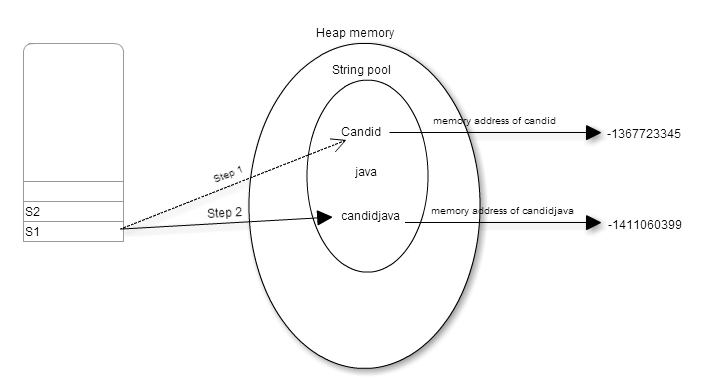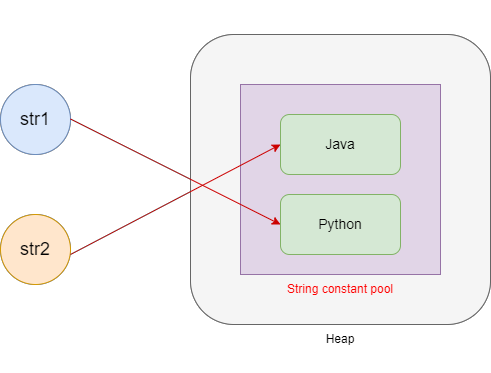Why Are Strings Immutable in Java? Enhancing Code Reliability
Why Are Strings Immutable in Java? Enhancing Code Reliability
Blog Article
Discovering the Benefits of Immutable Strings in Modern Programming Paradigms
In the world of modern-day shows paradigms, the principle of immutable strings stands as a foundation of robust software program development. By taking on immutable strings, designers can guarantee improved information integrity, improved string safety, streamlined debugging processes, enhanced protection procedures, and efficient performance optimization.
Boosted Data Integrity

By stopping the modification of string items, immutability removes the danger of unintentional modifications to the information they hold. This not only enhances the security of the info but likewise improves the dependability of the code that counts on these strings.
Immutability also sustains more secure multithreading environments, as simultaneous access to immutable strings does not present the threat of data corruption through synchronised adjustments. This building streamlines the process of handling strings in parallel programs situations.
Basically, immutability serves as a protective shield around the data saved within strings, improving their integrity by making sure that when defined, their worths stay unmodified throughout the program's execution.

Improved String Safety And Security
Immutable strings enhance the thread safety and security of programs by guaranteeing that as soon as a string things is developed, its value can not be customized. This residential property eliminates the threat of concurrent threads trying to change the very same string concurrently, which might cause information corruption or inconsistent states in the program - Why are strings immutable in Java?. In a multi-threaded environment, where multiple threads gain access to and adjust data concurrently, the immutability of strings provides a degree of safety and security by guaranteeing that the data remains unchanged throughout its lifecycle
Streamlined Debugging Procedures
Given the boosted string safety assisted in by unalterable strings, a considerable advantage develops in the world of streamlined debugging procedures. Unalterable strings, when developed, can not be modified, making it much easier to trace the flow of data and determine the source of pests in a program. This immutability makes certain that strings continue to be regular throughout the implementation of the program, lowering the chance of unanticipated changes that might cause errors.
When debugging with mutable strings, designers often come across concerns where a string's worth is customized unintentionally, making it challenging to determine the source of a bug. Nonetheless, with unalterable strings, the information remains unchanged, allowing programmers to focus on analyzing the actual logic of the code as opposed to tracking down where and when a string was modified incorrectly.
Additionally, unalterable strings streamline the debugging procedure by making it possible for less complicated reproduction of pests. Because immutable strings do not transform state, developers can recreate and research insects better, leading to quicker recognition and resolution of issues within the codebase. This structured debugging process ultimately adds to higher software program quality and improved overall advancement effectiveness.

Increased Safety And Security Procedures
Enhancing information security and strengthening system honesty, the utilization of immutable strings in software application applications adds significantly to increased security procedures. Unalterable strings, when created, can not be customized, supplying a critical protection versus malicious meddling or unauthorized gain access to. By guaranteeing that delicate information saved in strings remains unaltered throughout the program's implementation, the risk of data breaches or injection assaults is greatly reduced. Why are strings immutable in Java?. Immutable strings also play a crucial investigate this site function in protecting against typical protection susceptabilities such as barrier overflows and SQL shot strikes, as efforts to adjust string information at runtime are naturally restricted.
Moreover, the immutability of strings enhances the predictability of program actions, making it easier to verify inputs and prevent unexpected modifications that could jeopardize protection. This predictability streamlines the process of bookkeeping and validating code, allowing programmers to identify potential safety loopholes much more properly. content In general, integrating unalterable strings into software program development methods not just improves the effectiveness and reliability of applications yet also enhances their resilience against protection dangers.
Efficient Efficiency Optimization
When dealing with mutable strings, procedures like concatenation or substring development usually result in the production of brand-new string objects, leading to memory expenses and boosted processing time. By permitting strings to stay continuous and stable, immutable strings facilitate much better memory management and caching opportunities, inevitably boosting the overall performance of the software program.
Considering that unalterable strings can not be customized as soon as created, they can be shared across threads without the danger of unforeseen modifications, lowering the need for synchronization systems and enhancing concurrency. Immutable strings streamline debugging processes as designers can rely on that a string's worth will certainly continue to be consistent throughout the program's execution, removing potential errors created by mutable state changes.
Conclusion
To conclude, the benefits of making use of immutable strings in modern programming standards can not be overstated. Improved information stability, enhanced thread safety, streamlined debugging procedures, increased security measures, and efficient efficiency optimization all add to the overall effectiveness of shows jobs. By from this source including immutable strings into programming practices, designers can gain from a much more trusted and robust codebase.
Immutability, a key function of strings in programs languages such as Java and Python, makes certain that as soon as a string item is produced, it can not be altered or modified.Unalterable strings enhance the thread safety of programs by guaranteeing that when a string things is created, its value can not be customized. Immutable strings also play an essential function in protecting against usual security vulnerabilities such as barrier overflows and SQL shot assaults, as attempts to manipulate string data at runtime are inherently restricted.
By permitting strings to stay constant and unchangeable, unalterable strings help with much better memory management and caching chances, inevitably improving the overall effectiveness of the software program.
Immutable strings streamline debugging processes as designers can trust that a string's worth will remain constant throughout the program's execution, getting rid of potential mistakes caused by mutable state changes.
Report this page